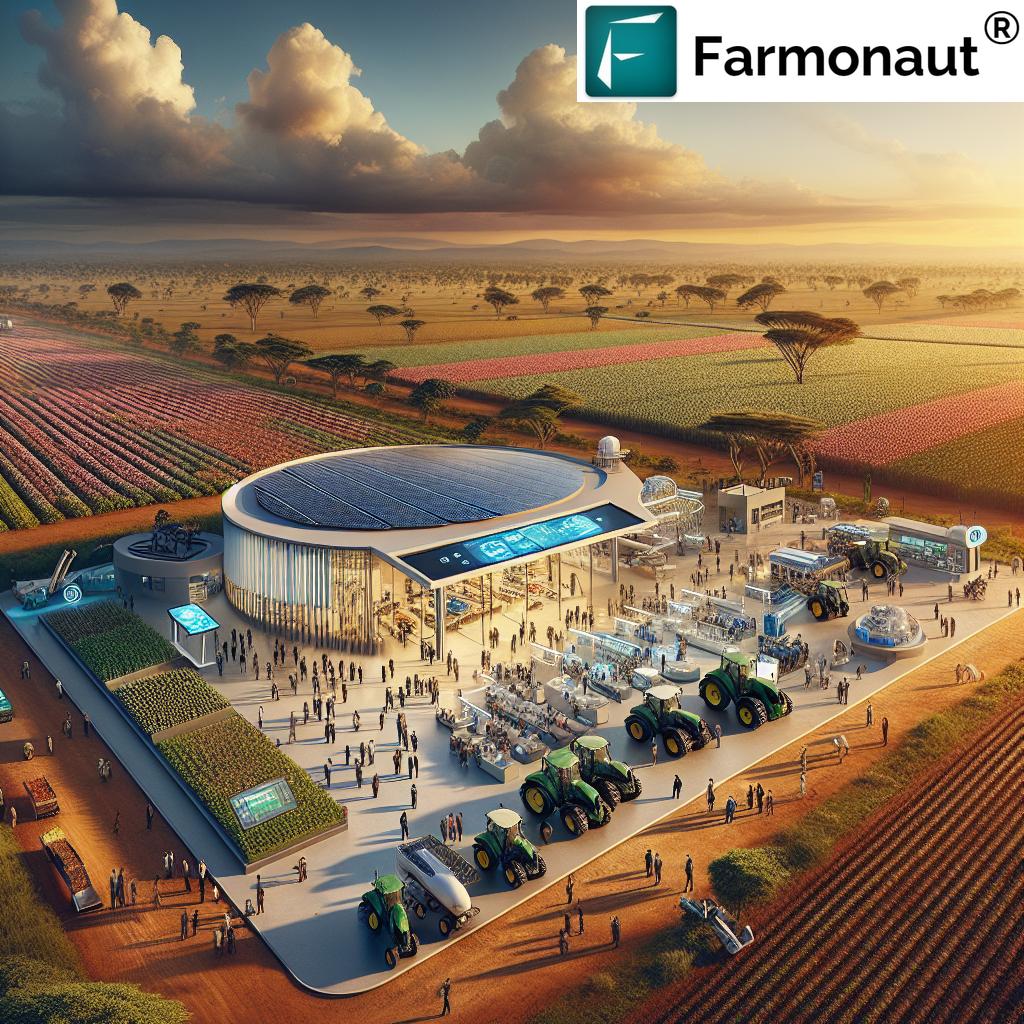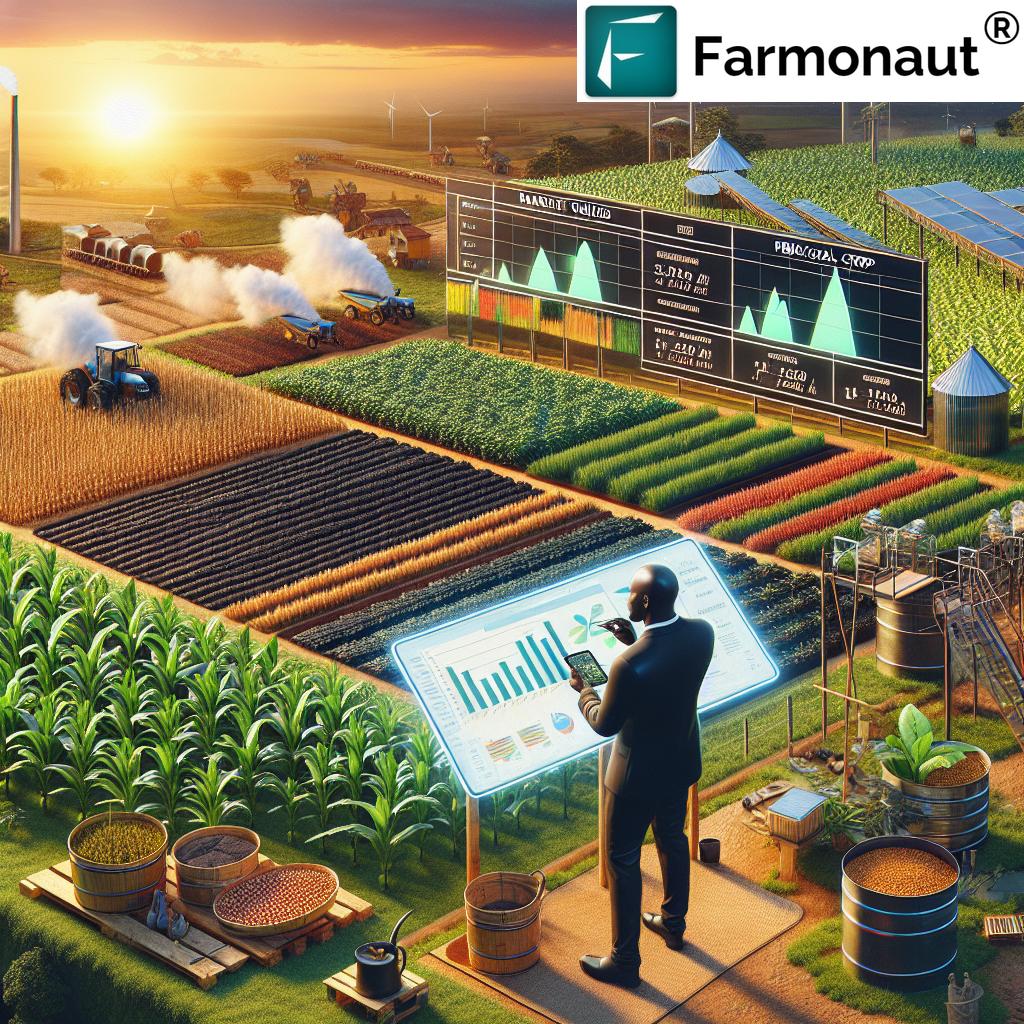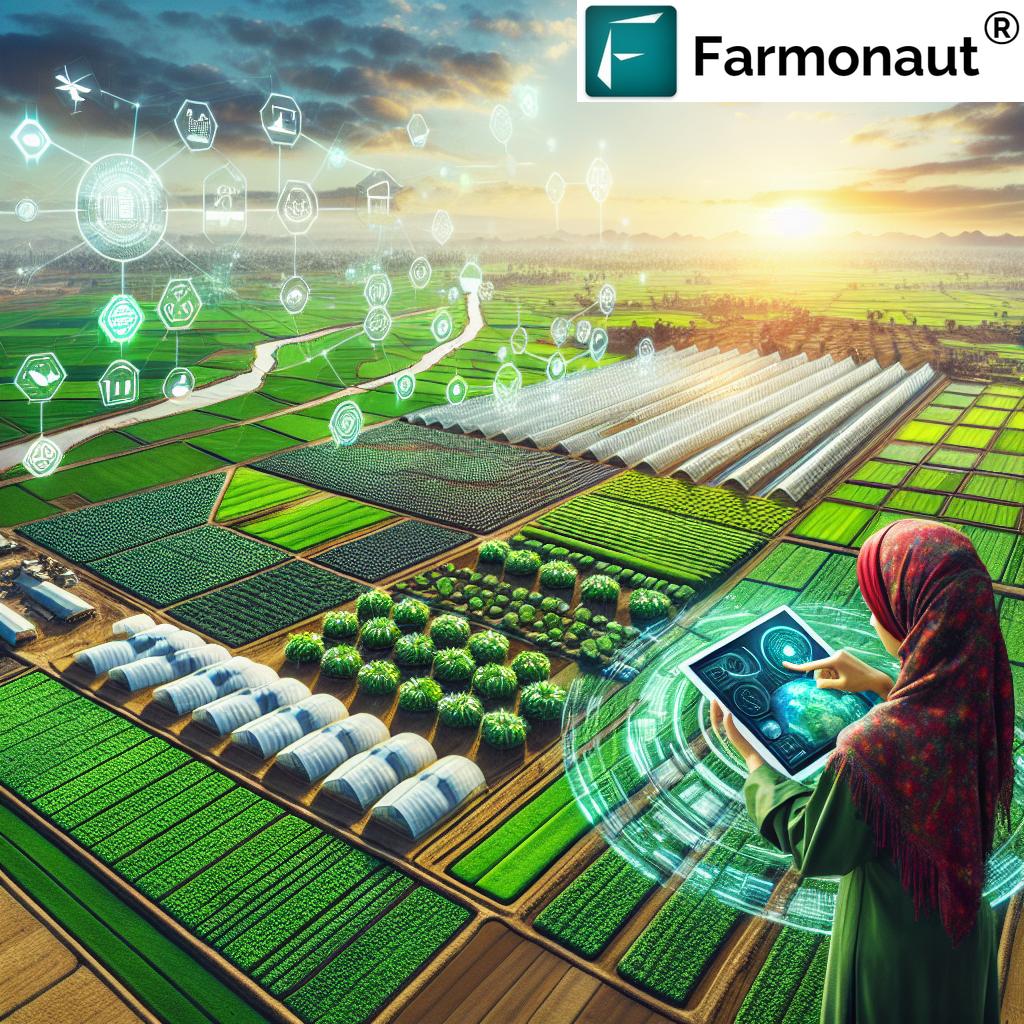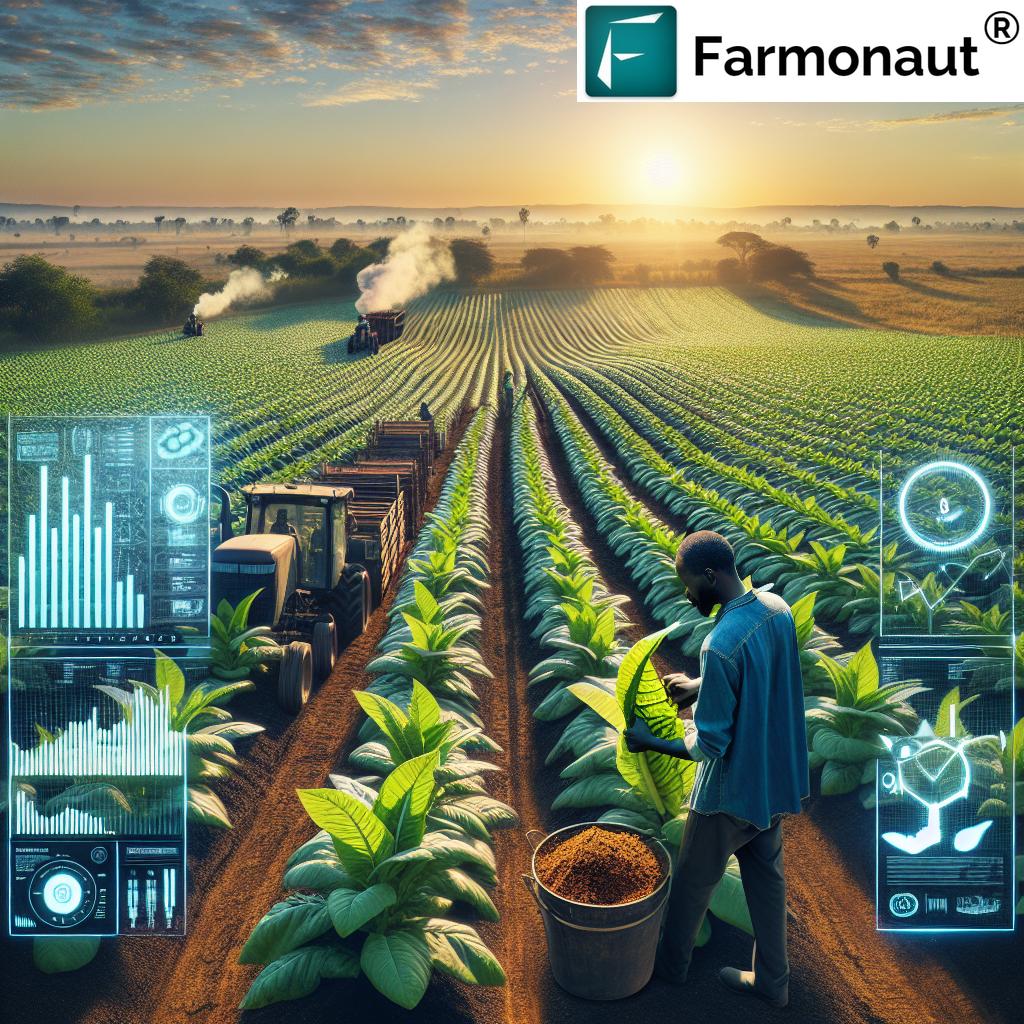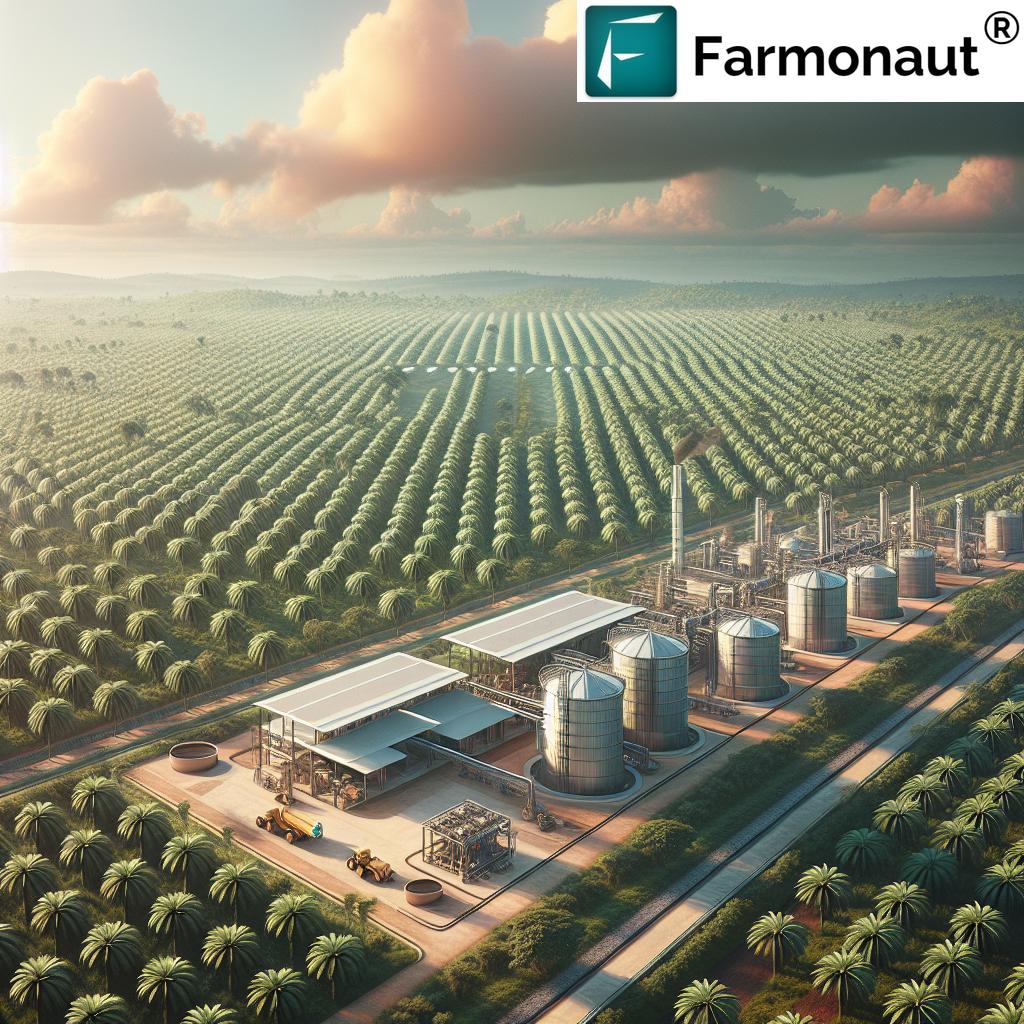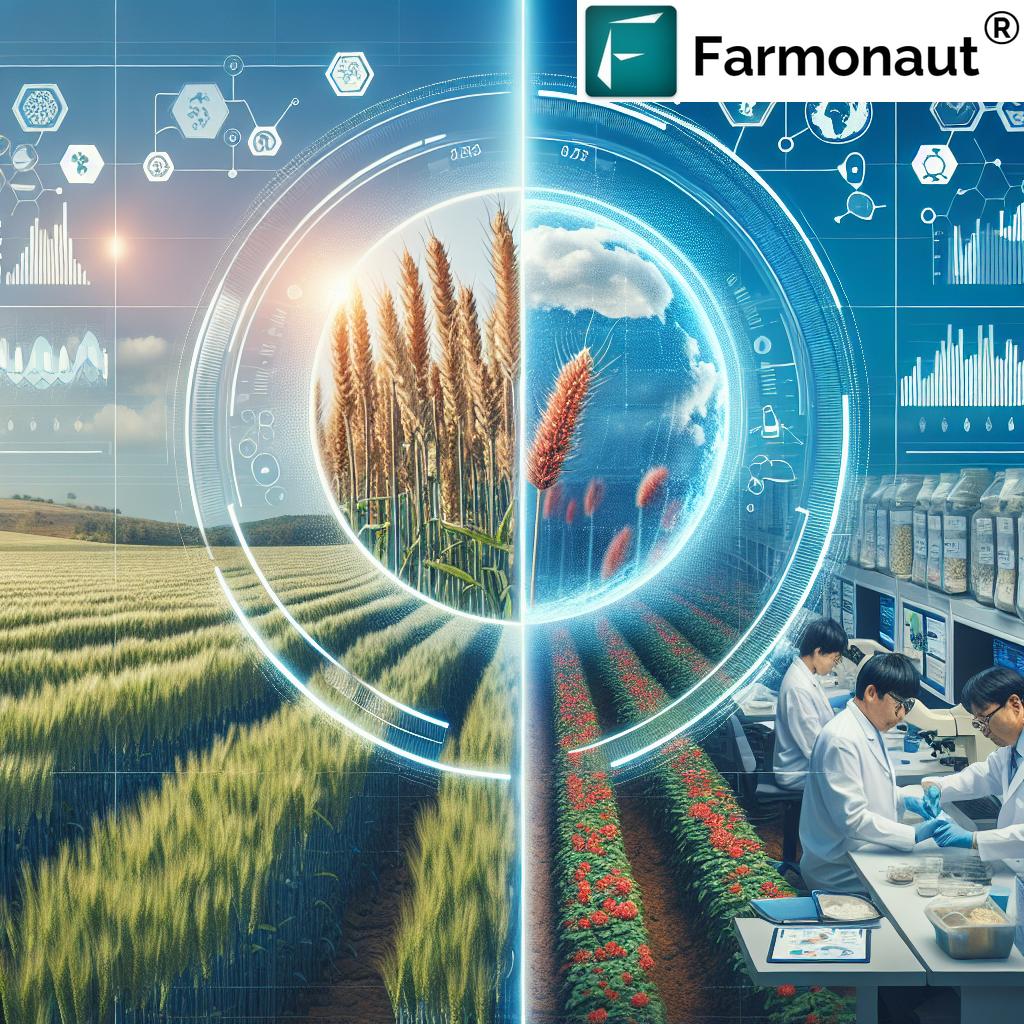Unlocking Sustainable Agriculture: Angola and Oman’s Agritech Partnership for Food Security and Clean Energy Innovation
“Angola and Oman’s partnership explores 5+ sectors, including clean energy in agriculture and agritech investment opportunities.”
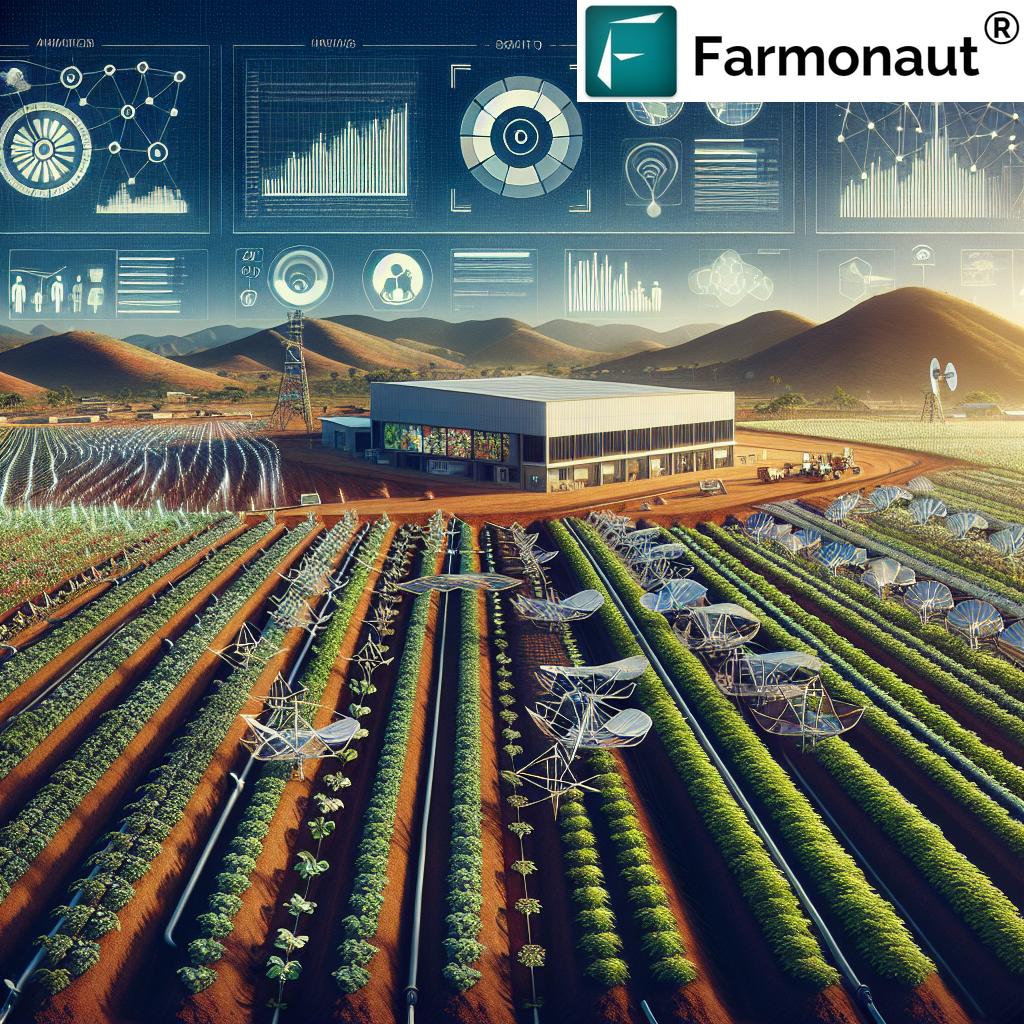
In a world grappling with the challenges of food security and sustainable agriculture, international cooperation has become more crucial than ever. We are witnessing an exciting development in this realm as the Republic of Angola and the Sultanate of Oman forge a promising partnership aimed at revolutionizing their agricultural sectors. This collaboration, which spans multiple areas including clean energy in agriculture and agritech investment opportunities, has the potential to set a new standard for sustainable farming practices and climate-smart agriculture across regions.
The Foundation of a Fruitful Partnership
The recent diplomatic visit of Angolan President João Lourenço to the Sultanate of Oman from December 19-21, 2024, marks a significant milestone in the bilateral relations between these two nations. Invited by His Majesty Sultan Haitham bin Tarik, President Lourenço engaged in high-level discussions that focused on strengthening partnerships across various sectors, with a particular emphasis on agriculture and food security technology.
This visit underscores the commitment of both Angola and Oman to address global challenges collaboratively, including climate change and food security. By combining their unique strengths and resources, these nations are poised to make substantial progress in developing sustainable and innovative agricultural solutions.
Key Areas of Agricultural Cooperation
The partnership between Angola and Oman in the agricultural sector is multifaceted, encompassing several critical areas:
- Clean Energy in Agriculture: Both nations recognize the importance of reducing the carbon footprint of agricultural activities. They are exploring ways to integrate renewable energy sources into farming operations, potentially revolutionizing how farms are powered.
- Agritech Investment Opportunities: There’s a strong focus on leveraging technology to enhance agricultural productivity. This includes investment in precision agriculture solutions, such as those offered by companies like Farmonaut, which provide satellite-based crop monitoring and management tools.
- Agricultural Logistics Innovation: Improving the supply chain and distribution networks for agricultural products is a key priority. This could involve developing smart storage facilities and efficient transportation systems.
- Remote Sensing for Crop Monitoring: Utilizing advanced satellite technology for real-time crop health assessment and yield prediction is another area of mutual interest.
- Sustainable Farming Practices: Both countries are committed to promoting farming methods that are environmentally friendly and economically viable in the long term.
The Role of Technology in Agricultural Advancement
As we delve deeper into the Angola-Oman agricultural partnership, it’s crucial to understand the pivotal role that technology plays in modern farming. Precision agriculture solutions, such as those provided by Farmonaut, are at the forefront of this agricultural revolution.
Farmonaut’s satellite-based farm management solutions offer real-time crop health monitoring, AI-based advisory systems, and resource management tools. These technologies align perfectly with the goals of the Angola-Oman partnership, enabling farmers to make data-driven decisions that optimize crop yields while minimizing resource usage.
Key benefits of incorporating such technologies include:
- Enhanced crop monitoring capabilities
- Improved resource allocation and management
- Increased farm productivity and efficiency
- Better adaptation to climate change impacts
- Reduced environmental footprint of agricultural activities
Explore Farmonaut’s API for advanced agricultural data integration
Climate-Smart Agriculture: A Shared Vision
Both Angola and Oman recognize the urgent need to address climate change in their agricultural practices. Climate-smart agriculture (CSA) is an approach that helps guide actions to transform agri-food systems towards green and climate resilient practices. This approach is central to the partnership between these two nations.
“The diplomatic visit between Angola and Oman aims to address 3 global challenges: food security, climate change, and sustainable farming.”
Climate-smart agriculture rests on three main pillars:
- Sustainably increasing agricultural productivity and incomes
- Adapting and building resilience to climate change
- Reducing and/or removing greenhouse gas emissions, where possible
By focusing on these aspects, Angola and Oman are setting the stage for a more resilient and sustainable agricultural future. This approach not only benefits their respective nations but also contributes to global efforts in combating climate change and ensuring food security.
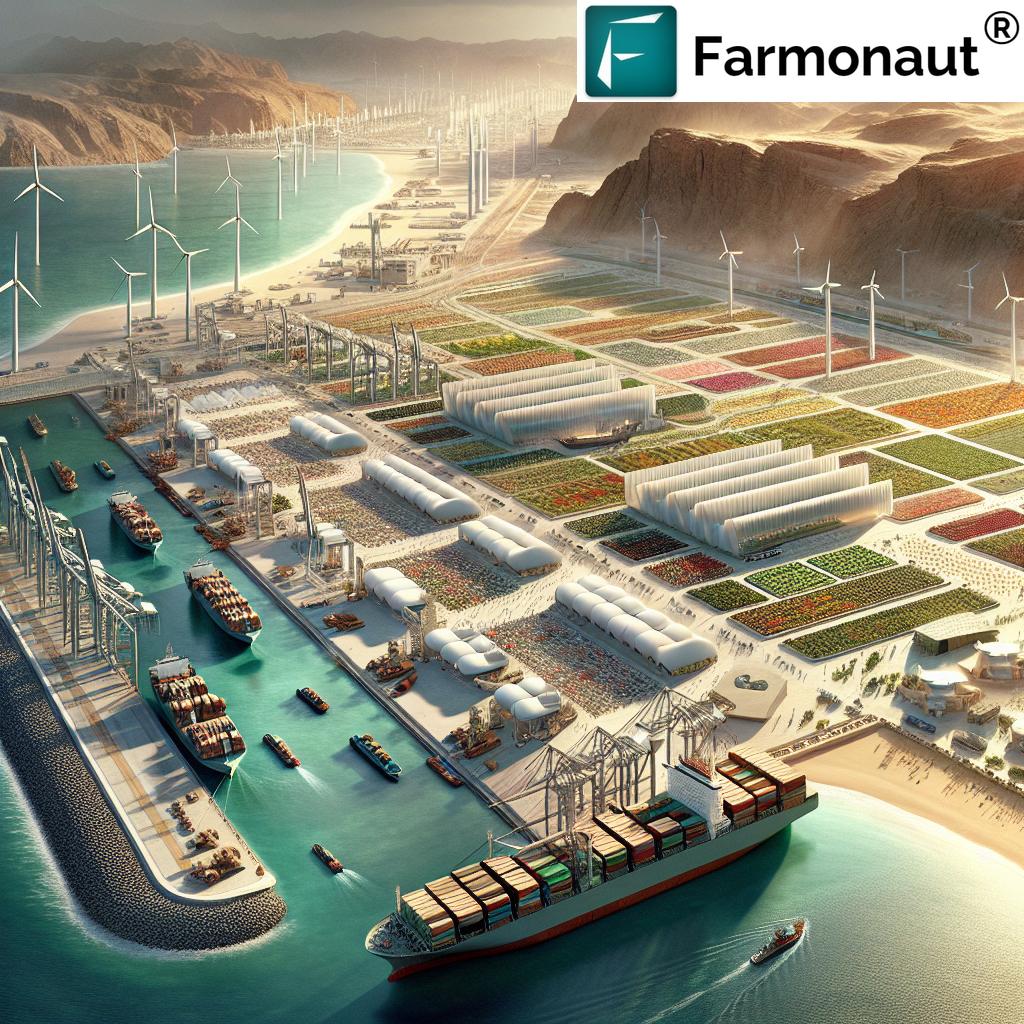
Enhancing Food Security Through Technological Innovation
Food security is a critical concern for both Angola and Oman, and their partnership places significant emphasis on leveraging technology to address this issue. Advanced agricultural technologies play a crucial role in enhancing food production, reducing waste, and improving distribution systems.
Key technological innovations being explored include:
- Precision agriculture techniques for optimal resource use
- AI-driven crop management systems
- Blockchain technology for supply chain transparency
- Smart irrigation systems for water conservation
- Vertical farming solutions for urban areas
These innovations are not just theoretical concepts but practical solutions that are being implemented and refined. For instance, Farmonaut’s precision agriculture solutions offer farmers the ability to monitor crop health in real-time, make informed decisions about irrigation and fertilizer use, and ultimately improve yields while reducing resource waste.
Access Farmonaut’s API Developer Docs for in-depth integration guidance
The Impact of Clean Energy on Agricultural Practices
The integration of clean energy in agriculture is a cornerstone of the Angola-Oman partnership. This focus on sustainable energy sources has the potential to transform traditional farming practices, making them more environmentally friendly and economically viable in the long run.
Clean energy applications in agriculture include:
- Solar-powered irrigation systems
- Wind energy for farm operations
- Biogas production from agricultural waste
- Energy-efficient greenhouse technologies
- Electric farm vehicles and machinery
By adopting these clean energy solutions, both countries aim to reduce the carbon footprint of their agricultural sectors while simultaneously improving productivity and resilience to climate change.
Comparative Analysis of Agricultural Cooperation Opportunities
| Cooperation Area | Angola’s Contribution | Oman’s Contribution | Potential Impact |
|---|---|---|---|
| Clean Energy in Agriculture |
• Vast land resources for solar farms • Experience in hydroelectric power |
• Advanced solar technology expertise • Investment in renewable energy research |
• Reduced carbon emissions in farming • Lower operational costs for farmers |
| Agritech Investment |
• Large agricultural workforce • Diverse climatic zones for testing |
• Strong financial sector • Experience in tech incubation |
• Increased agricultural productivity • Creation of high-tech farming jobs |
| Agricultural Logistics |
• Strategic location in Southern Africa • Expanding port infrastructure |
• World-class logistics expertise • Advanced port management systems |
• Improved food distribution networks • Reduced post-harvest losses |
| Remote Sensing for Crop Monitoring |
• Large-scale farming operations • Diverse crop varieties |
• Investment in satellite technology • Data analysis capabilities |
• Enhanced crop yield predictions • More efficient resource allocation |
| Climate-Smart Agriculture Practices |
• Rich biodiversity • Traditional farming knowledge |
• Research in drought-resistant crops • Water conservation technologies |
• Increased resilience to climate change • Sustainable use of natural resources |
Leveraging Precision Agriculture for Sustainable Growth
Precision agriculture is at the heart of the technological advancements being explored in the Angola-Oman partnership. This approach to farm management uses information technology and a wide array of items such as GPS guidance, control systems, sensors, robotics, drones, autonomous vehicles, variable rate technology, GPS-based soil sampling, and automated hardware to optimize returns on inputs while preserving resources.
Farmonaut’s precision agriculture solutions exemplify the kind of technology that can drive this agricultural revolution. By providing farmers with real-time data on crop health, soil moisture levels, and weather patterns, these tools enable more informed decision-making and resource management.
Key benefits of precision agriculture include:
- Optimized use of water and fertilizers
- Reduced environmental impact
- Increased crop yields
- Improved farm planning and management
- Enhanced ability to adapt to changing climate conditions
By incorporating these advanced technologies, Angola and Oman are positioning themselves at the forefront of agricultural innovation, setting a model for sustainable farming practices that can be emulated globally.
The Role of Artificial Intelligence in Advancing Agriculture
Artificial Intelligence (AI) is playing an increasingly significant role in modern agriculture, and it’s a key area of focus in the Angola-Oman partnership. AI technologies have the potential to revolutionize farming practices, from crop planning to harvest optimization.
Some key applications of AI in agriculture include:
- Predictive analytics for crop yield forecasting
- Automated irrigation systems
- Pest and disease detection
- Robotic harvesting
- Personalized crop recommendations based on soil and climate data
Farmonaut’s Jeevn AI Advisory System is an excellent example of how AI can be leveraged in agriculture. This system provides personalized farm advisory, delivering real-time insights and expert crop management strategies to farmers. By analyzing satellite data and other inputs, Jeevn AI generates customized advice that can significantly improve farm productivity and efficiency.
Enhancing Agricultural Logistics and Supply Chains
A critical aspect of the Angola-Oman agricultural partnership is the focus on improving agricultural logistics and supply chains. Efficient logistics are essential for reducing post-harvest losses, ensuring food security, and maximizing the economic benefits of agricultural production.
Key areas of focus in agricultural logistics include:
- Development of smart storage facilities
- Implementation of blockchain technology for supply chain transparency
- Optimization of transportation routes and methods
- Establishment of efficient cold chain systems
- Integration of IoT devices for real-time tracking and monitoring
By leveraging technologies like Farmonaut’s fleet and resource management tools, both countries can significantly improve their agricultural logistics. These tools help optimize vehicle usage, ensure safety, and improve overall management of agricultural machinery, leading to more efficient and cost-effective operations.
Promoting Sustainable Farming Practices
Sustainability is at the core of the Angola-Oman agricultural partnership. Both nations recognize the importance of adopting farming practices that are not only productive but also environmentally responsible and socially beneficial.
Key sustainable farming practices being promoted include:
- Conservation agriculture techniques
- Agroforestry systems
- Integrated pest management
- Water-efficient irrigation methods
- Crop rotation and diversification
Farmonaut’s platform supports these sustainable practices by providing farmers with tools for efficient resource management and environmental monitoring. For instance, the carbon footprinting feature allows agribusinesses to track their emissions in real-time, enabling them to take steps towards reducing their environmental impact and complying with environmental regulations.
The Future of Food Security
The collaborative efforts between Angola and Oman in agricultural technology and sustainable farming practices are set to have a significant impact on food security in both nations and potentially beyond. By combining Oman’s technological expertise with Angola’s vast agricultural resources, this partnership has the potential to create a model for food security that can be replicated in other regions facing similar challenges.
Key aspects of this food security model include:
- Diversification of food sources
- Implementation of climate-resilient farming techniques
- Development of local food processing industries
- Strengthening of regional food trade networks
- Investment in agricultural research and development
The use of advanced technologies like those offered by Farmonaut plays a crucial role in this vision. By providing real-time data on crop health and environmental conditions, these tools enable farmers and policymakers to make informed decisions that enhance food production and distribution.
Conclusion: A New Era of Agricultural Innovation
The agricultural partnership between Angola and Oman represents a significant step towards addressing some of the most pressing challenges in modern agriculture. By focusing on sustainable farming practices, leveraging cutting-edge technology, and promoting international cooperation, this collaboration sets a new standard for agricultural development in the 21st century.
As we move forward, the integration of advanced technologies like those provided by Farmonaut will be crucial in realizing the full potential of this partnership. From precision agriculture and AI-driven advisory systems to blockchain-based traceability solutions, these innovations are paving the way for a more sustainable, productive, and resilient agricultural sector.
The Angola-Oman partnership serves as an inspiring example of how nations can work together to tackle global challenges such as food security and climate change. It demonstrates that by combining diverse strengths and resources, countries can achieve far more than they could individually, creating a blueprint for agricultural innovation that can benefit communities around the world.
FAQ Section
Q1: What are the main areas of cooperation between Angola and Oman in agriculture?
A1: The main areas of cooperation include clean energy in agriculture, agritech investment opportunities, agricultural logistics innovation, remote sensing for crop monitoring, and sustainable farming practices.
Q2: How does technology play a role in this agricultural partnership?
A2: Technology plays a crucial role through the implementation of precision agriculture solutions, AI-driven crop management systems, blockchain for supply chain transparency, and advanced remote sensing techniques for crop monitoring.
Q3: What is climate-smart agriculture, and why is it important in this context?
A3: Climate-smart agriculture is an approach that helps transform agri-food systems towards green and climate-resilient practices. It’s important because it addresses the challenges of increasing agricultural productivity, adapting to climate change, and reducing greenhouse gas emissions.
Q4: How does this partnership contribute to food security?
A4: The partnership contributes to food security by enhancing agricultural productivity through advanced technologies, improving distribution systems, reducing waste, and developing climate-resilient farming practices.
Q5: What role does clean energy play in this agricultural cooperation?
A5: Clean energy is a key focus, with both countries exploring the integration of renewable energy sources like solar and wind into farming operations to reduce the carbon footprint of agriculture and improve sustainability.








